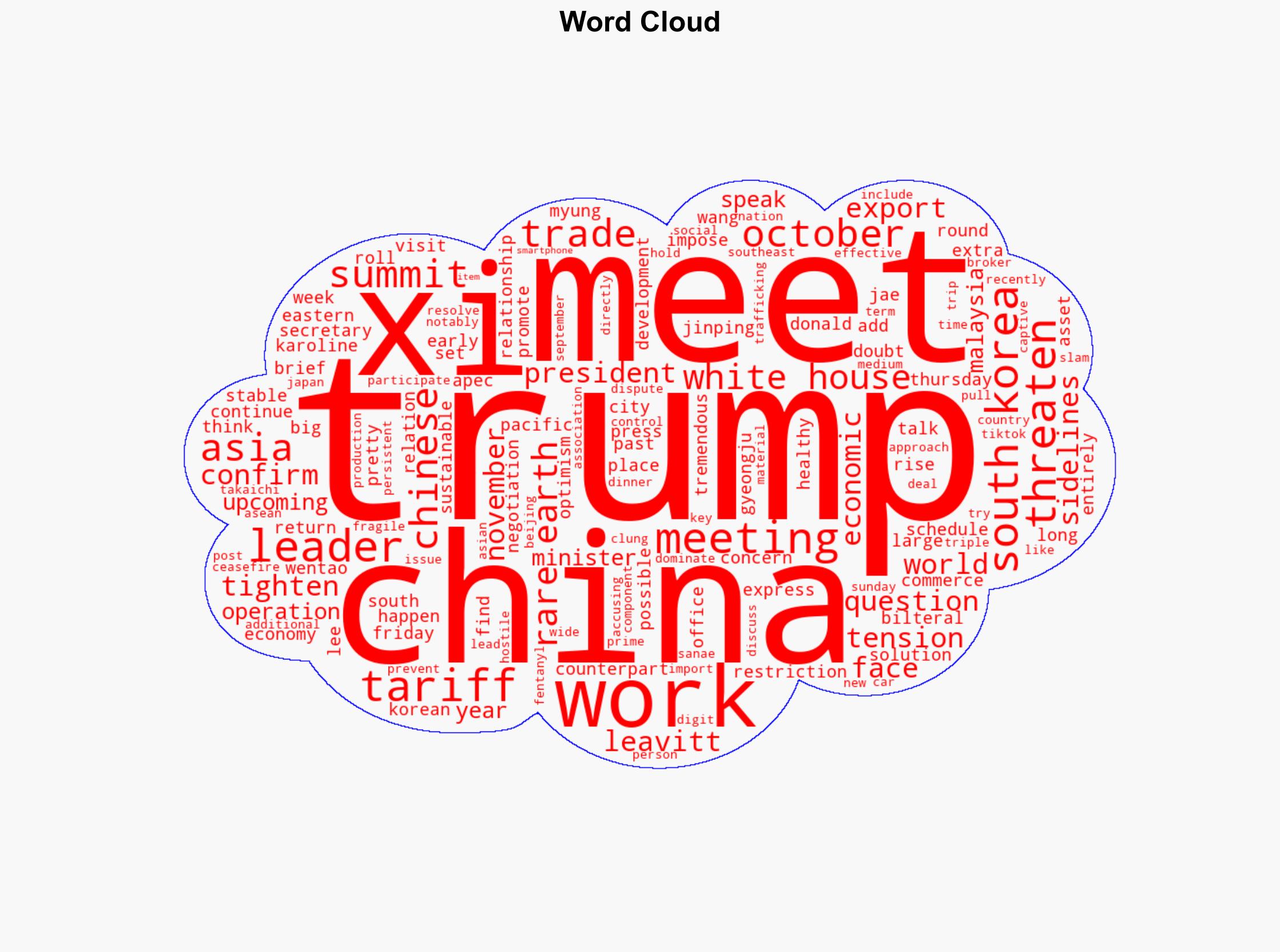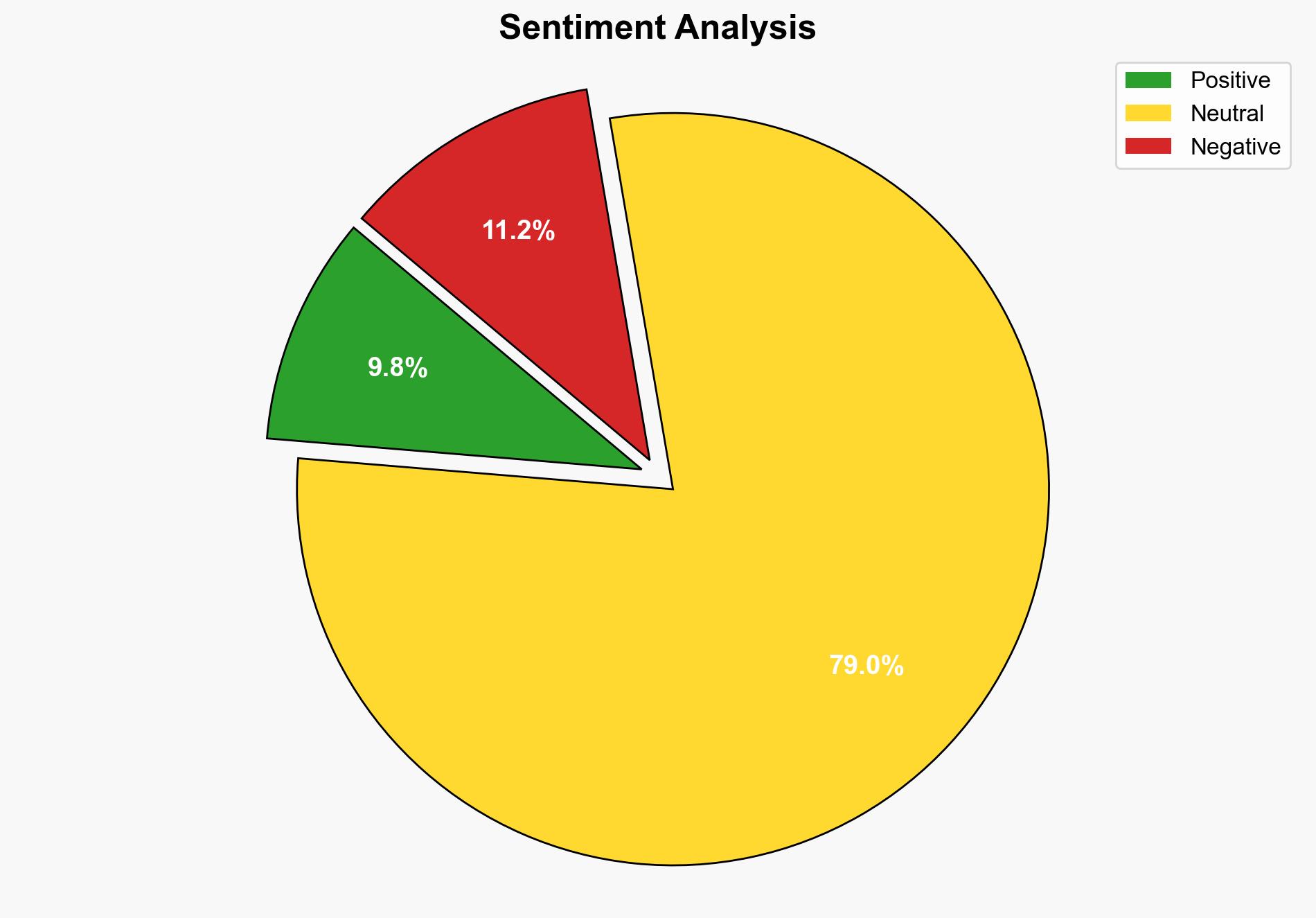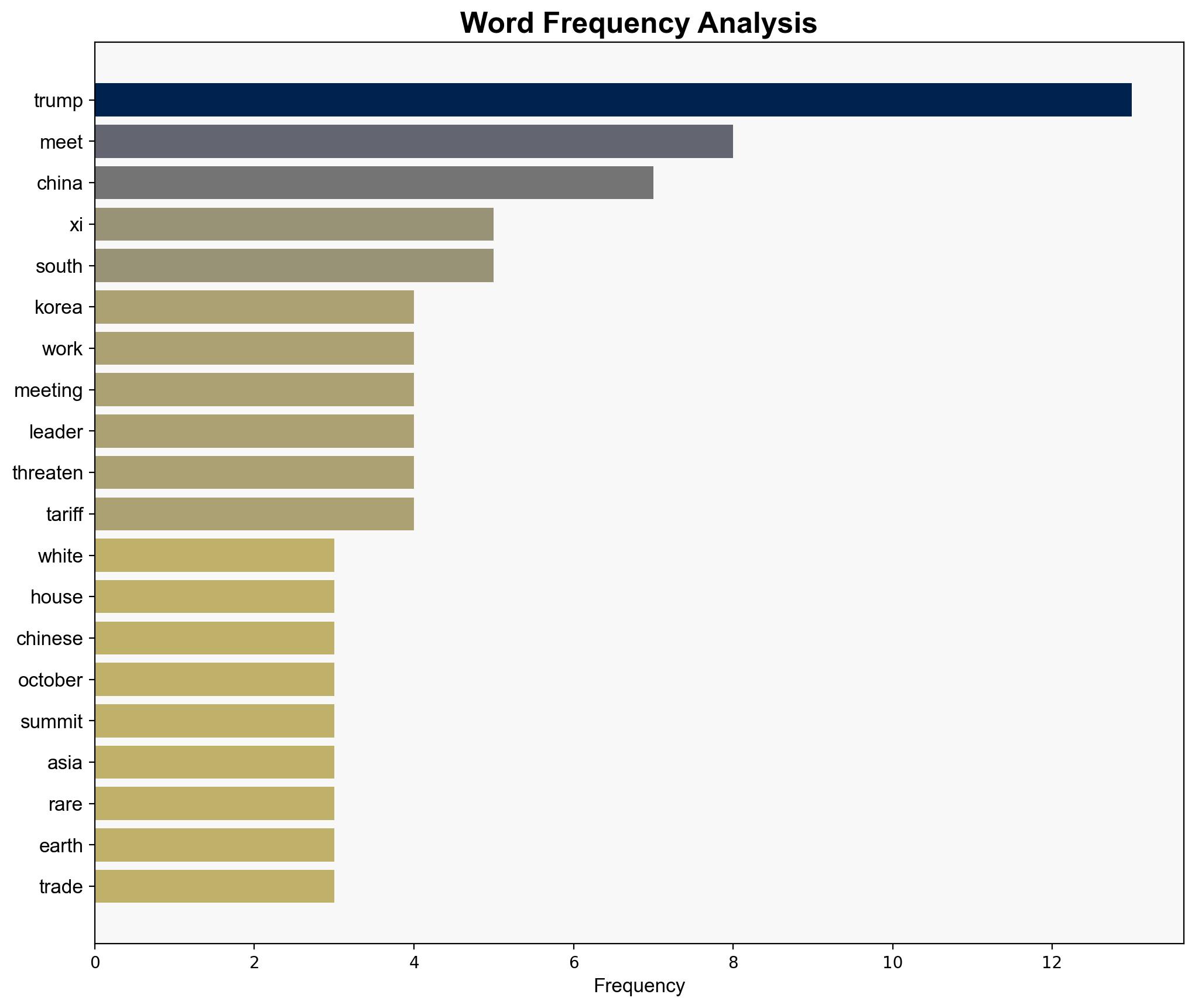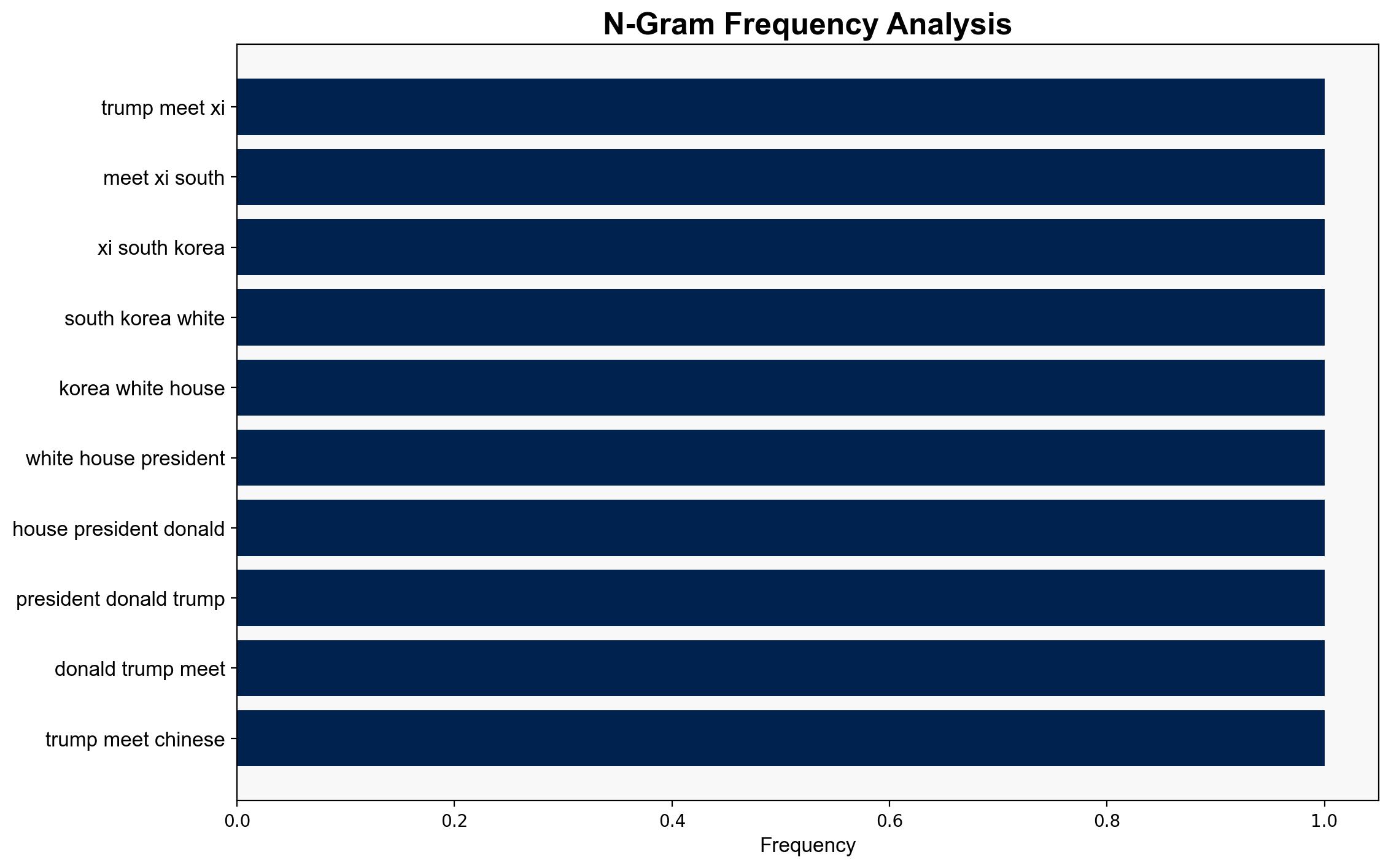Trump will meet with Xi in South Korea says White House – BBC News
Published on: 2025-10-24
Intelligence Report: Trump will meet with Xi in South Korea says White House – BBC News
1. BLUF (Bottom Line Up Front)
The most supported hypothesis is that the meeting between Donald Trump and Xi Jinping is primarily aimed at de-escalating ongoing trade tensions and exploring potential agreements on economic and trade issues. Confidence level: Moderate. Recommended action: Monitor the outcomes of the meeting for shifts in trade policies and prepare for potential changes in tariffs and export controls.
2. Competing Hypotheses
1. **De-escalation and Negotiation Hypothesis**: The meeting is intended to de-escalate trade tensions and negotiate new trade agreements, focusing on tariffs and rare earth exports. This is supported by the optimism expressed by China’s commerce minister and the strategic timing of the meeting before the Asia-Pacific Economic Cooperation (APEC) summit.
2. **Posturing and Strategic Positioning Hypothesis**: The meeting serves as a platform for both leaders to assert their positions and leverage negotiations in other international forums. This is supported by Trump’s history of using high-profile meetings to bolster his diplomatic stance and the recent tightening of China’s export controls on rare earth materials.
3. Key Assumptions and Red Flags
– **Assumptions**: It is assumed that both leaders are genuinely interested in resolving trade disputes and that the meeting will lead to substantive outcomes. Another assumption is that the meeting will not be derailed by other geopolitical tensions.
– **Red Flags**: The potential for the meeting to be used as a political tool rather than a genuine negotiation effort. The lack of detailed agendas or pre-meeting agreements raises questions about the meeting’s effectiveness.
4. Implications and Strategic Risks
– **Economic Risks**: Failure to reach an agreement could lead to increased tariffs and further strain on global supply chains, particularly in technology sectors reliant on rare earth materials.
– **Geopolitical Risks**: The meeting could exacerbate tensions if perceived as a power play, potentially impacting alliances and regional stability.
– **Cyber and Psychological Risks**: Increased cyber activities could be used to influence or disrupt negotiations, and public perception could be swayed by media portrayals of the meeting’s outcomes.
5. Recommendations and Outlook
- Monitor the meeting closely for any shifts in trade policy or new agreements. Prepare contingency plans for changes in tariffs and export controls.
- Engage in diplomatic efforts to support de-escalation and promote transparent communication between the U.S. and China.
- Scenario Projections:
- Best Case: Successful negotiation leads to reduced tariffs and improved trade relations.
- Worst Case: Breakdown in talks results in increased tariffs and heightened tensions.
- Most Likely: Incremental progress with some agreements but persistent underlying tensions.
6. Key Individuals and Entities
– Donald Trump
– Xi Jinping
– Karoline Leavitt
– Wang Wentao
7. Thematic Tags
national security threats, economic diplomacy, trade negotiations, geopolitical strategy





